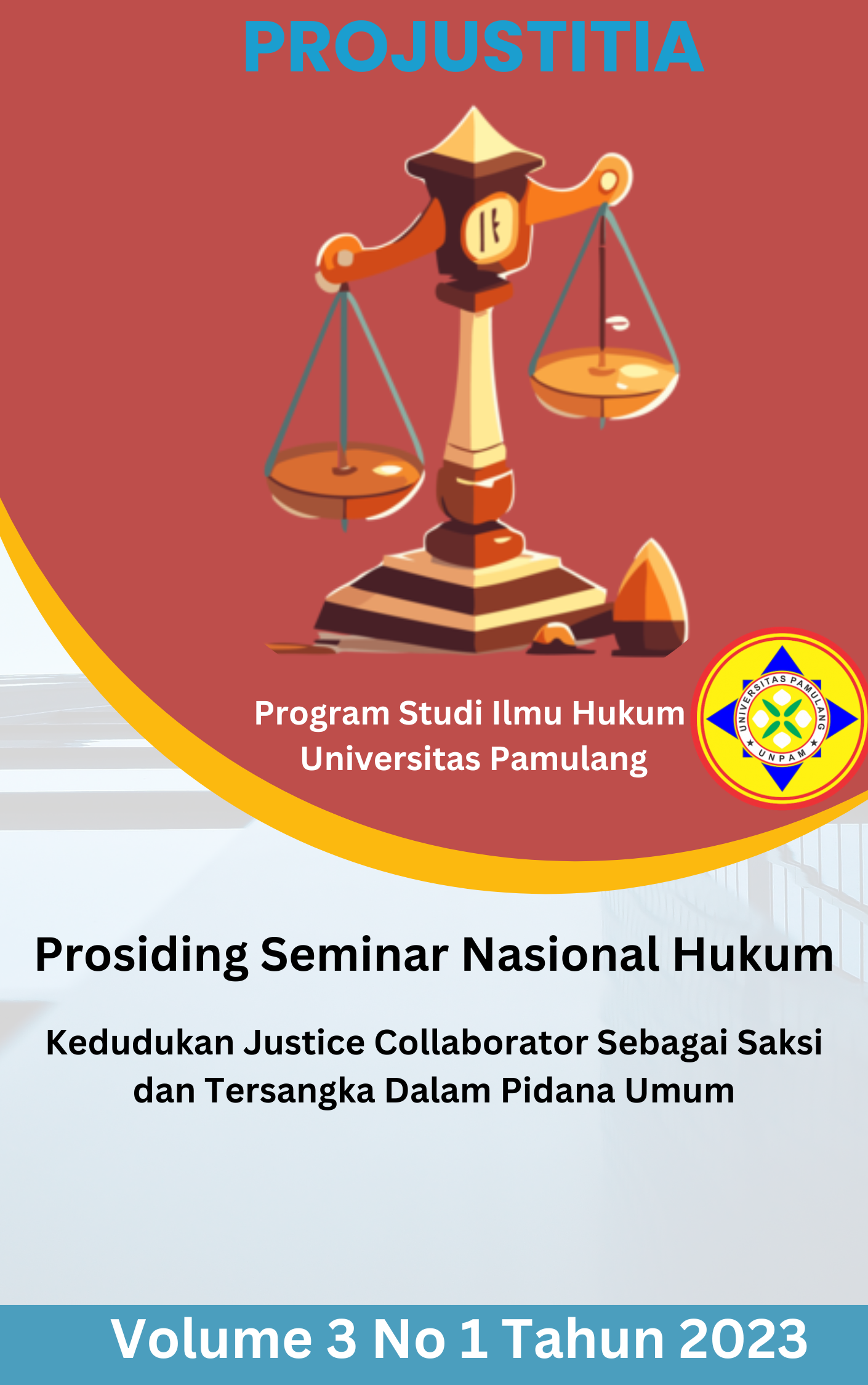ANALISIS YURIDIS PEMBEBANAN PEMBUKTIAN TERBALIK TINDAK PIDANA KORUPSI BERDASARKAN UNDANG - UNDANG NOMOR 31 TAHUN 1999 Jo. UNDANG - UNDANG NOMOR 20 TAHUN 2001 DARI : PERSPEKTIF KEBIJAKAN LEGISLASI DAN HAK ASASI MANUSIA
Abstract
ABSTRACT: The purpose of this research is to find out how the defendant's proof is reversed in a corruption case in terms of human rights and how the existing legal sources regulate the problem of reverse proof. By using normative juridical research methods, it can be concluded: 1. Elucidation of Law no. 31 of 1999 it is stated that the definition of reverse proof is limited and balanced, namely that the defendant has the right to prove that he has not committed a criminal act of corruption and is obliged to provide information about all his property and the assets of his wife or husband, children, and the property of any person or corporation that suspected of having a relationship with the case in question and the public prosecutor is still obliged to prove his indictment. 2. The legal basis governing the issue of reverse proof in corruption cases is based on the system regulated in Law no. 31 of 1999 in conjunction with Law no. 20 of 2001 and at the same time with the KUHAP system. The existence of reversing the burden of proof from the perspective of legislation policy is known in the criminal act of corruption as a "premium remediation" provision and also contains a special prevention. The criminal act of corruption as "extra ordinary crimes that require extra ordinary enforcement and extra ordinary measures", then crucial aspects in cases of corruption is the effort to fulfill the burden of proof in the process by law enforcement officers. The application of limited or balanced reverse evidence by using a negative evidence system according to the law (negative wettelijk overtuiging)
Keywords : Reverse proof, defendant, corruption, human rights


